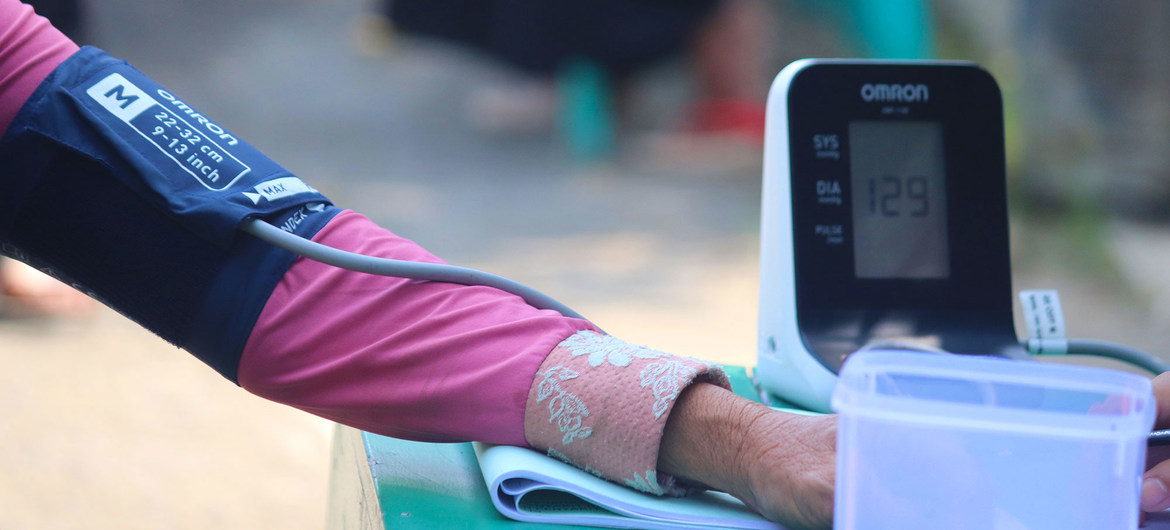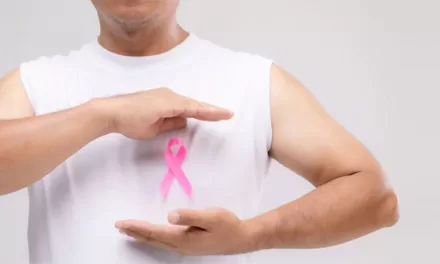Outbreak at a glance
On 8 July 2022, WHO was notified of a case of circulating vaccine-derived poliovirus type 2 (cVDPV2) with acute flaccid paralysis (AFP) from Tamanrasset province, southern Algeria. This represents the first cVDPV2 case identified in the country. Local public health authorities are conducting a field investigation, and an active search for additional AFP cases; a reactive Immunization campaign is also planned.
Description of the outbreak
On 8 July 2022, a case of circulating vaccine-derived poliovirus type 2 (cVDPV2) in Algeria was notified to WHO through the Global Polio Laboratory Network (GPLN). The case is a child under two years old from Tamanrasset province, southern Algeria, with onset of acute flaccid paralysis (AFP) on 11 April 2022. Stool specimens tested positive for cVDPV2 by the Pasteur Institute of Algeria and were confirmed by Pasteur Institute of Paris. Genomic sequencing analysis indicates that the isolated virus is genetically linked to a virus previously isolated in Kano, Nigeria. The child had not received any polio vaccine doses and has no history of travel outside Tamanrasset province.
This represents the first cVDPV2 case identified in Algeria, where, according to the 2021 WHO-UNICEF immunization coverage estimates, Pol3 (3rd dose of polio-containing vaccine) coverage was 91% and IPV1 (one dose of the inactivated polio vaccine) coverage was 94%.
Epidemiology of Poliomyelitis
Polio is a highly infectious disease that largely affects children under five years of age, causing permanent paralysis (approximately 1 in 200 infections) or death (2-10% of those paralyzed).
The virus is transmitted by person-to-person, mainly through the fecal-oral route or, less frequently, by a common vehicle (e.g., contaminated water or food) and multiplies in the intestine, from where it can invade the nervous system and cause paralysis.
The incubation period is usually 7–10 days but can range from 4–35 days. Up to 90% of those infected are either asymptomatic or experience mild symptoms and the disease usually goes unrecognized.
Vaccine-derived poliovirus is a well-documented strain of poliovirus mutated from the strain originally contained in oral polio vaccine (OPV). OPV contains a live, weakened form of poliovirus that replicates in the intestine for a limited period, thereby developing immunity by building up antibodies. On rare occasions, when replicating in the gastrointestinal tract, OPV strains genetically change and may spread in communities that are not fully vaccinated against polio, especially in areas where there is poor hygiene, poor sanitation, or overcrowding. The lower the population immunity, the longer this virus survives and the more genetic changes it undergoes.
In very rare instances, the vaccine-derived virus can genetically change into a form that can cause paralysis as does the wild poliovirus – this is what is known as a vaccine-derived poliovirus (VDPV). The detection of VDPV in at least two different sources and at least two months apart, that are genetically linked, showing evidence of transmission in the community, should be classified as ‘circulating’ vaccine-derived poliovirus type 2 (cVDPV2). Circulating vaccine-derived poliovirus type 2 (cVDPV2) continues to affect different areas of the world, notably in the African Region.
Public health response
- Surveillance has been strengthened for active search for additional AFP cases in and around the immediate area of the detected case.
- A Detailed field investigation has been initiated in coordination with the GPLN to identify the extent of the virus circulation (including potentially in neighboring countries).
- A response plan has been prepared in accordance with the revised international polio outbreak response SOPs.
- A reactive Immunization campaign is planned.
WHO risk assessment
WHO considers there to be a continued high risk of international spread of cVDPV2, due to persisting suboptimal immunity, surveillance gaps, and large-scale population movements. The risk is magnified by decreased immunization rates related to the ongoing COVID-19 pandemic.
The current isolate in Algeria is linked to a virus originating in Kano, Nigeria, demonstrating the potential for the international spread of this disease.
WHO advice
It is important that all countries, in particular those with frequent travel and contacts with polio-affected countries and areas, strengthen surveillance for AFP cases and commence planned expansion of environmental surveillance in order to rapidly detect any new virus importation and to facilitate a rapid response. Countries, territories and areas should also maintain uniformly high routine immunization coverage at the district level to minimize the consequences of any new virus introduction.
WHO’s International travel and health recommends that all travellers to polio-affected areas be fully vaccinated against polio. Residents (and visitors for more than 4 weeks) from infected areas should receive an additional dose of oral polio vaccine (OPV) or inactivated polio vaccine (IPV) within four weeks to 12 months of travel.
Based on the advice of an Emergency Committee convened under the International Health Regulations (2005), the risk of international spread of poliovirus remains a Public Health Emergency of International Concern (PHEIC). Countries affected by poliovirus transmission are subject to Temporary Recommendations. To comply with the Temporary Recommendations issued under the PHEIC, any country infected by poliovirus should declare the outbreak as a national public health emergency, ensure the vaccination of residents and long-term visitors and restrict at the point of departure travel of individuals, who have not been vaccinated or cannot prove the vaccination status.
WHO does not recommend any travel and/or trade restrictions to Algeria based on the information available for this current event.
Further information
- Global Polio Eradication Initiative (GPEI)
- The Global Polio Laboratory Network (GPLN)
- WHO Polio Factsheet
- WHO/UNICEF estimates of national immunization coverage
- Global Polio Eradication Initiative: FACT SHEET: VACCINE-DERIVED POLIOVIRUS
- GPEI Public health emergency status
- International Travel and Health
- Standard operating procedures: responding to a poliovirus event or outbreak, version 3.1.
Citable reference: World Health Organization 13 September 22 2022). Disease Outbreak News; Circulating vaccine-derived poliovirus type 2 (cVDPV2) – Algeria. Available at: https://www.who.int/emergencies/disease-outbreak-news/item/2022-DON406











